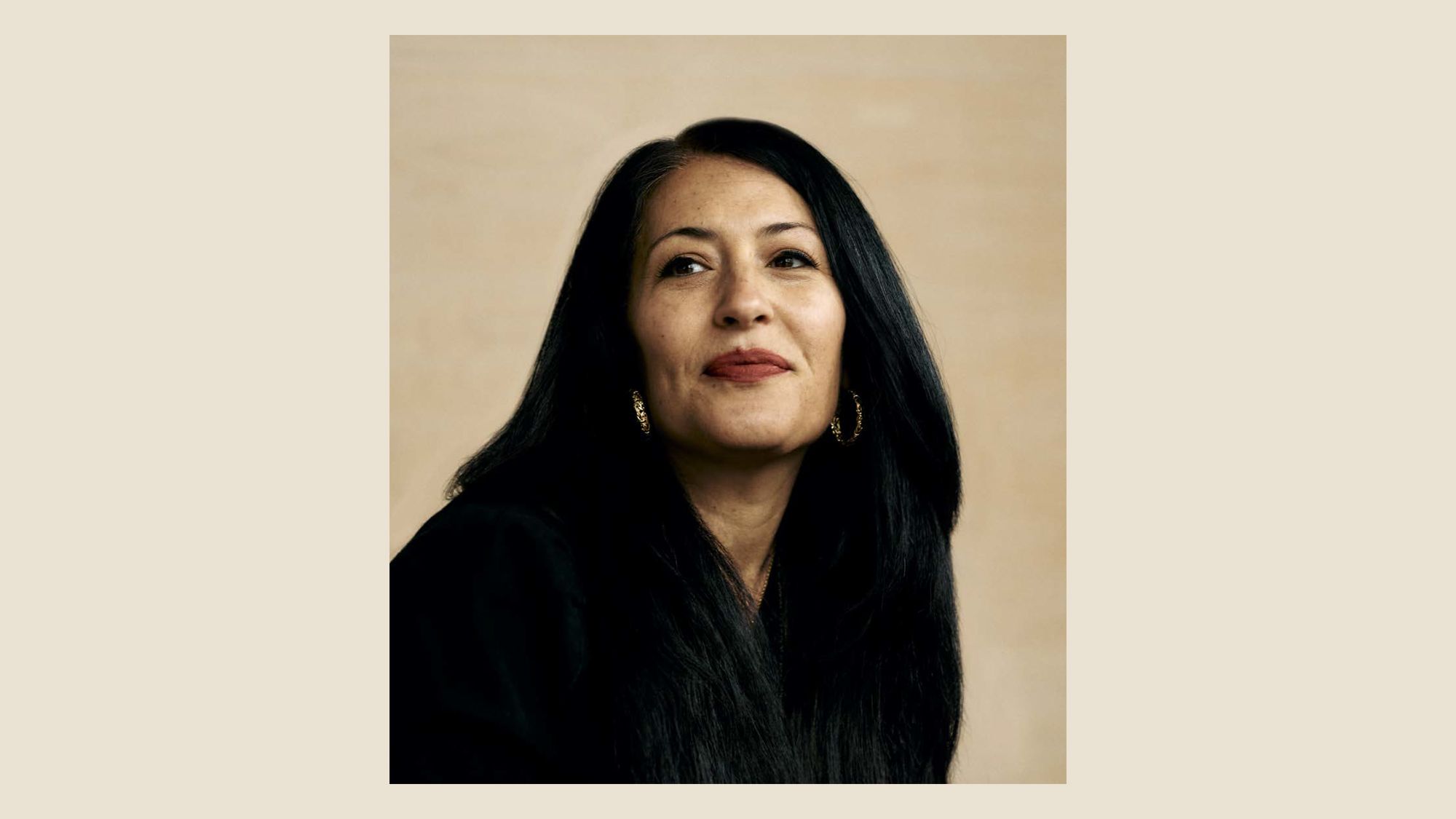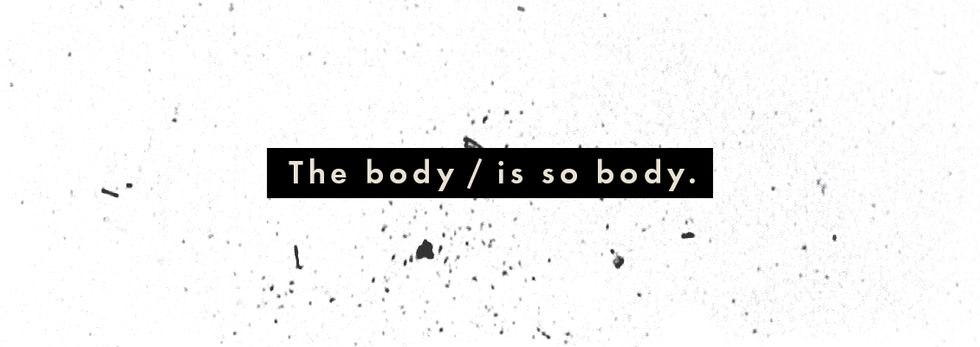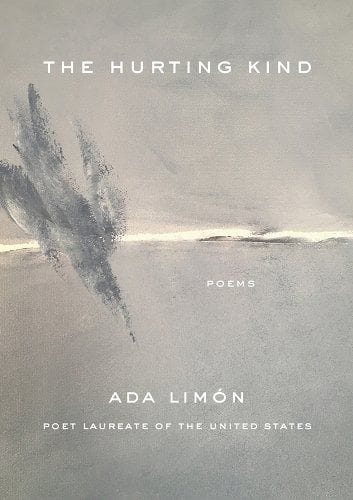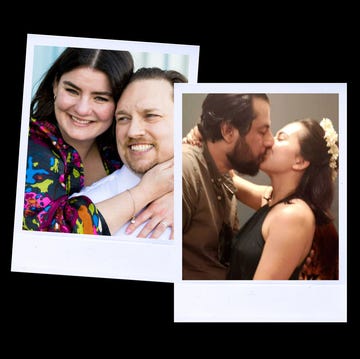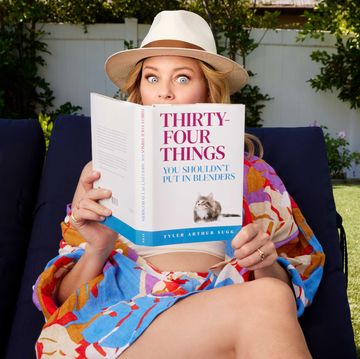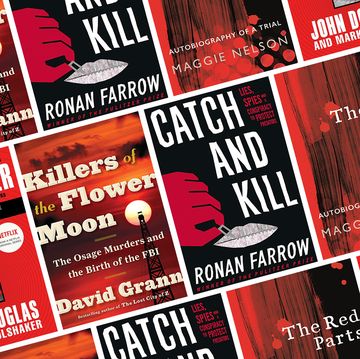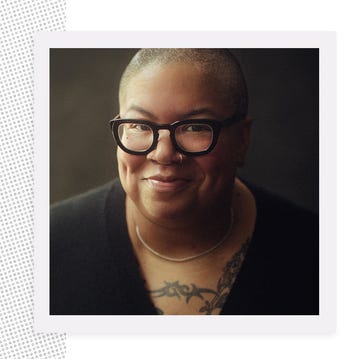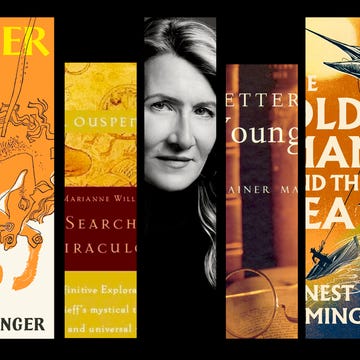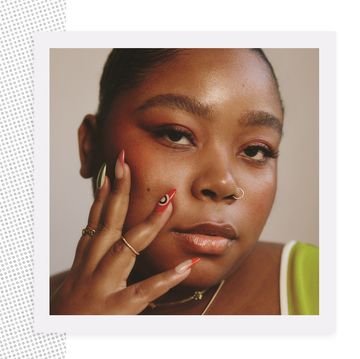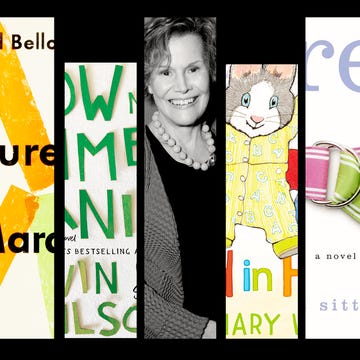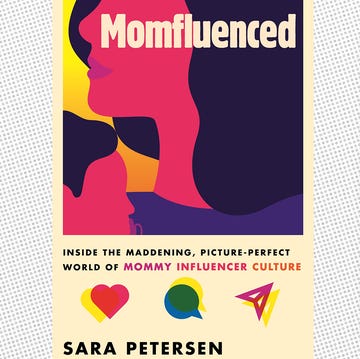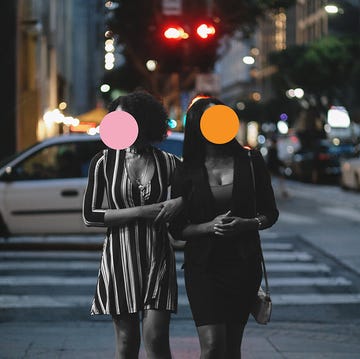Ada Limón told her speaking agent she couldn’t take the mysterious late-morning phone call. She had physical therapy. Her agent suggested, gently, that she reschedule. She did. And hopped onto a Zoom call with seven people, including Librarian of Congress Carla Hayden, PhD (Limón calls her “the hero of librarians”), who told her that she was being invited to be the 24th poet laureate of the United States. It was, Limón says, “like I was outside, watching this happen to someone else. I was a child, watching it happen to big Ada. I was an older Ada watching it happen to middle-aged Ada.”
It is fun to imagine these Adas. Little Ada, not knowing that one day she’d be the author of six critically acclaimed poetry collections, a rare breed of artist supporting herself entirely through her work, and newly knighted to a position the late Librarian of Congress James H. Billington once called “the nation’s official lightning rod for the poetic impulse of Americans.” And older Ada, from some point in the unknowable future, looking back at the moment she became tasked with the enduring and at times difficult-to-articulate job of being America’s poet.
Limón speaks to me over Zoom from her cheery, butter-yellow, sun-soaked office in Lexington, Kentucky, surrounded by shelves of books and thriving houseplants. She’s also just two weeks past her first bout with COVID, after managing to elude it for two and a half years.
For Limón, as for so many other writers, the pandemic has been its own special brand of hell. Not only the literal anxiety—personal, medical—but the artistic paralysis. Limón realized that she could write from a place of anger and rage and grief, but fear was an entirely different animal. “All the walls [went] up,” she says. “Fear...had me in its grip for so long. The anxiety of not just what was going to happen to my own body, but what was going to happen to my beloveds. To my friends and to my family. Then, beyond that, to the world.”
But, she says, this place—the precarity of the body, the way in which the body mediates the way we occupy the world—is where poetry lives. In her poem “A Good Story,” Limón writes, “The body / is so body.” It is a phrase I murmur to myself when something in my body is going wrong. Most recently, trying to climb out of the ocean and onto the sand with a bad ankle. It is the hottest summer on record. Contagions new and old circle us like vultures. Beneath me, the wet sand is shifting; I am unable to create the geometry required to pivot myself out of the water. “The body is so body,” I say, before someone reaches out and takes my hand.
This is precisely the contradiction of Limón’s tenure. As climate crisis after climate crisis ravages the globe, as an endless pandemic burns through us like wildfire, as we fail ourselves and each other with increasing frequency and ease—what does it mean, exactly, to be a poet of nature and the body, and the poet laureate of a nation at war with both nature and the body? I pose this question to Limón, feeling bad even as it leaves my mouth. (The question is a little combative, but, in my defense, no more combative than the idea of being the poet laureate of a nation on the constant verge of apocalypse.)
But the thing about Limón is, this isn’t a contradiction at all. It’s a reason. “I think it’s really important to—” She pauses. “I don’t know. If I believe in the arts and if I believe in the power of poetry and if I dare to say I believe in the power of language, I feel like this is an opportunity to be beholden to my own words, to my own beliefs, and it’s almost like the universe saying, ‘Well, prove it.’”
Prove it. Perhaps this is the job of the poet laureate—proving the impossible. Articulating the unknown.
Poetry, Limón tells me, is a place for wonder. For mystery. “It’s a place where we can go and find the strength to process a lot of this momentous chaos that we’re experiencing, both as human beings and as human animals on a planet in crisis.”
I am reminded, of course, of Limón’s horses—the ones that show up all over her poems, creatures as iconic and enduring as Mary Oliver’s wild geese. Limón’s mother was a caretaker on a horse ranch for the better part of three decades; her husband works as a marketer for thoroughbreds. They own a few. She doesn’t ride, but she visits them and feeds them carrots.
“The horse, for me, is very mysterious,” she says. “I feel like it’s an animal that everyone feels like they understand, but then when you’re up close, you’re like, ‘Nobody understands this.’” A horse is a kind of poem, then. A poem you can give a carrot to.
One day, Limón says, hopefully we will get to the part where we can not just survive, but flourish. And poetry is a part of that. “It was language that brought me back to living, being, breathing,” she tells me. “I think about how many times I look on the internet and see that incredible Lucille Clifton poem.” I know the one she is talking about, even before she says it. “Come celebrate / with me,” Clifton writes, “that everyday / something has tried to kill me / and has failed.”
“I think I’m really scared of platitudes,” Limón says. “I feel wholeheartedly that poetry isn’t going to stop the climate crisis and poetry is not going to save the world. But it has the potential to ground us again in what it is to be fully human.”
She is, she confesses, still working on the flourishing part. And poetry is part of that. “I’ve always said that poetry is my answer to ‘Where do I put all of this?’” she tells me. I know the feeling. “You’re like, ‘My hands are so full.’”
She nods. “I’ve got to put it down.”
This article appears in the February 2023 issue of ELLE.
Author photo by Caroline Tompkins.
Carmen Maria Machado is the author of the bestselling memoir In the Dream House and the award-winning short story collection Her Body and Other Parties. Her essays, fiction, and criticism have appeared in the New Yorker, the New York Times, Granta, Vogue, This American Life, The Believer, Guernica, and elsewhere.
